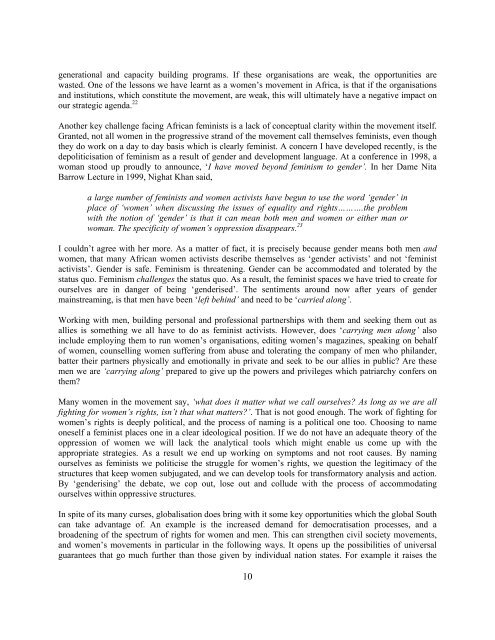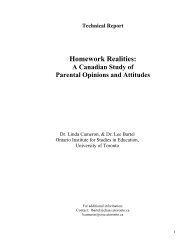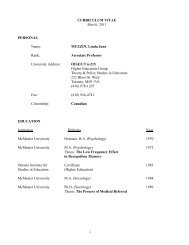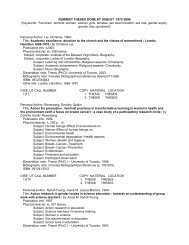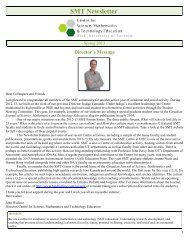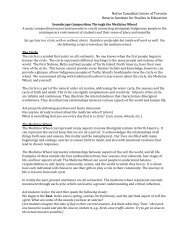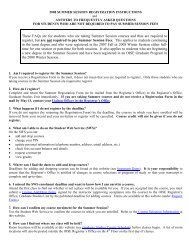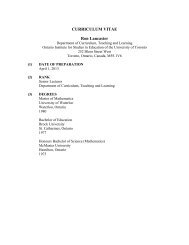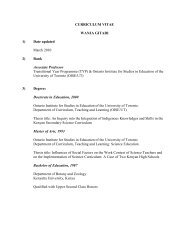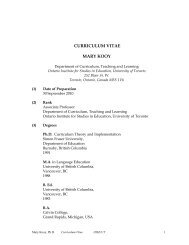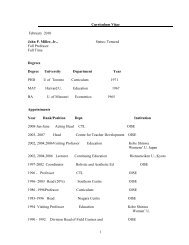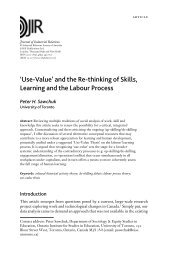CREATING AND SUSTAINING FEMINIST SPACE IN AFRICA ...
CREATING AND SUSTAINING FEMINIST SPACE IN AFRICA ...
CREATING AND SUSTAINING FEMINIST SPACE IN AFRICA ...
You also want an ePaper? Increase the reach of your titles
YUMPU automatically turns print PDFs into web optimized ePapers that Google loves.
generational and capacity building programs. If these organisations are weak, the opportunities are<br />
wasted. One of the lessons we have learnt as a women’s movement in Africa, is that if the organisations<br />
and institutions, which constitute the movement, are weak, this will ultimately have a negative impact on<br />
our strategic agenda. 22<br />
Another key challenge facing African feminists is a lack of conceptual clarity within the movement itself.<br />
Granted, not all women in the progressive strand of the movement call themselves feminists, even though<br />
they do work on a day to day basis which is clearly feminist. A concern I have developed recently, is the<br />
depoliticisation of feminism as a result of gender and development language. At a conference in 1998, a<br />
woman stood up proudly to announce, ‘I have moved beyond feminism to gender’. In her Dame Nita<br />
Barrow Lecture in 1999, Nighat Khan said,<br />
a large number of feminists and women activists have begun to use the word ‘gender’ in<br />
place of ‘women’ when discussing the issues of equality and rights……….the problem<br />
with the notion of ‘gender’ is that it can mean both men and women or either man or<br />
woman. The specificity of women’s oppression disappears. 23<br />
I couldn’t agree with her more. As a matter of fact, it is precisely because gender means both men and<br />
women, that many African women activists describe themselves as ‘gender activists’ and not ‘feminist<br />
activists’. Gender is safe. Feminism is threatening. Gender can be accommodated and tolerated by the<br />
status quo. Feminism challenges the status quo. As a result, the feminist spaces we have tried to create for<br />
ourselves are in danger of being ‘genderised’. The sentiments around now after years of gender<br />
mainstreaming, is that men have been ‘left behind’ and need to be ‘carried along’.<br />
Working with men, building personal and professional partnerships with them and seeking them out as<br />
allies is something we all have to do as feminist activists. However, does ‘carrying men along’ also<br />
include employing them to run women’s organisations, editing women’s magazines, speaking on behalf<br />
of women, counselling women suffering from abuse and tolerating the company of men who philander,<br />
batter their partners physically and emotionally in private and seek to be our allies in public Are these<br />
men we are ‘carrying along’ prepared to give up the powers and privileges which patriarchy confers on<br />
them<br />
Many women in the movement say, ‘what does it matter what we call ourselves As long as we are all<br />
fighting for women’s rights, isn’t that what matters’. That is not good enough. The work of fighting for<br />
women’s rights is deeply political, and the process of naming is a political one too. Choosing to name<br />
oneself a feminist places one in a clear ideological position. If we do not have an adequate theory of the<br />
oppression of women we will lack the analytical tools which might enable us come up with the<br />
appropriate strategies. As a result we end up working on symptoms and not root causes. By naming<br />
ourselves as feminists we politicise the struggle for women’s rights, we question the legitimacy of the<br />
structures that keep women subjugated, and we can develop tools for transformatory analysis and action.<br />
By ‘genderising’ the debate, we cop out, lose out and collude with the process of accommodating<br />
ourselves within oppressive structures.<br />
In spite of its many curses, globalisation does bring with it some key opportunities which the global South<br />
can take advantage of. An example is the increased demand for democratisation processes, and a<br />
broadening of the spectrum of rights for women and men. This can strengthen civil society movements,<br />
and women’s movements in particular in the following ways. It opens up the possibilities of universal<br />
guarantees that go much further than those given by individual nation states. For example it raises the<br />
10


